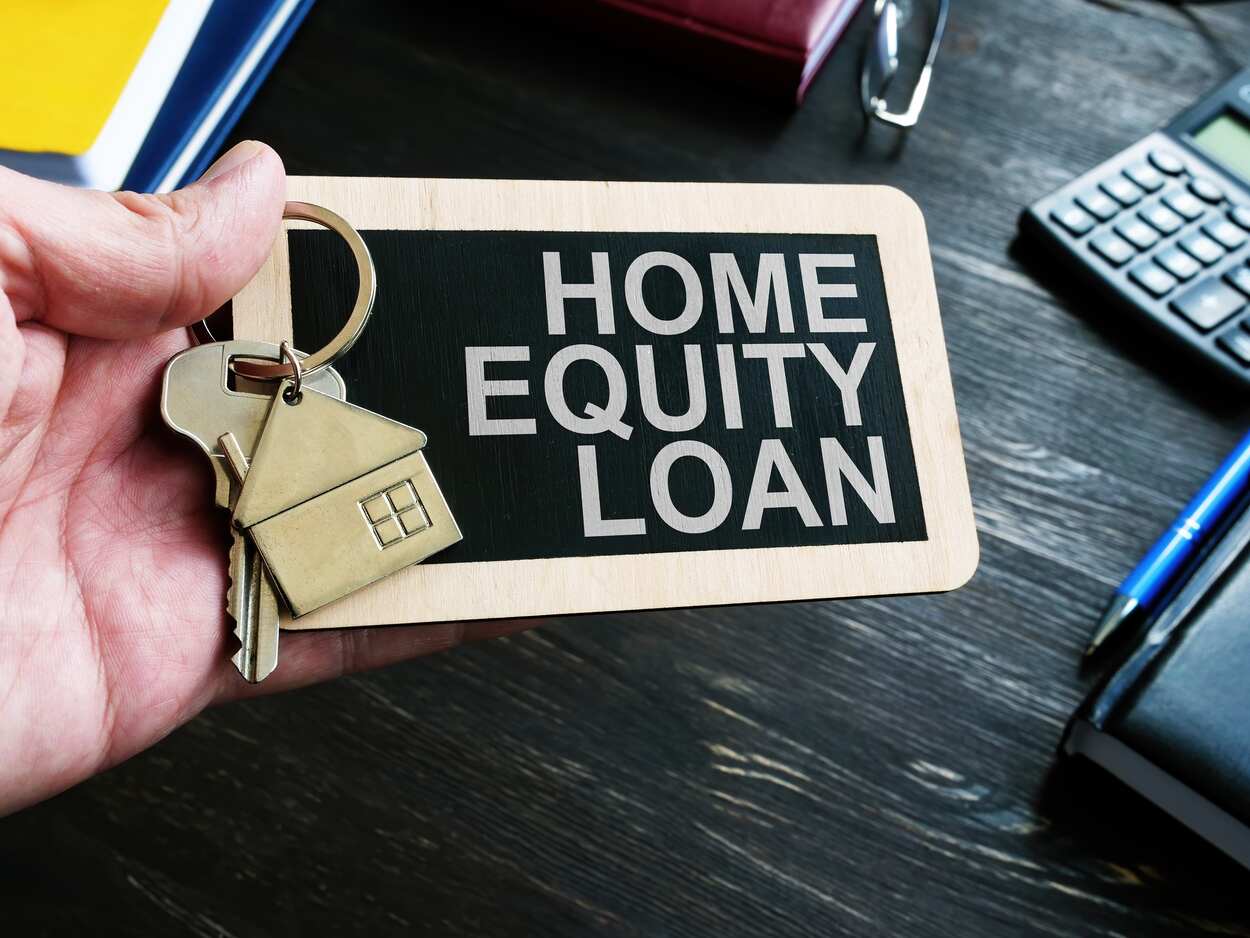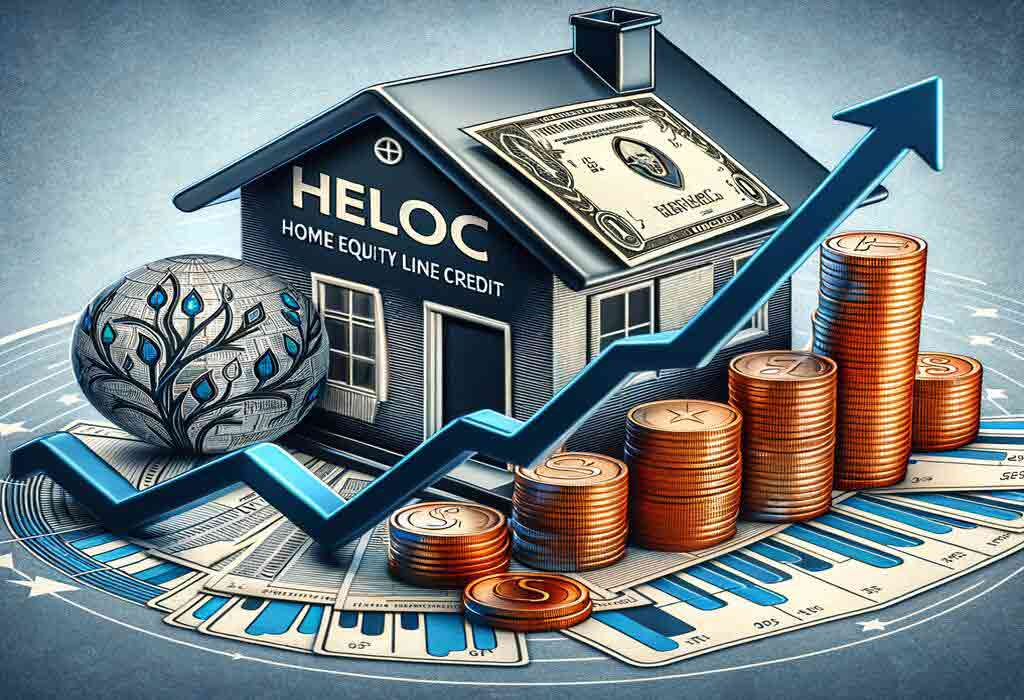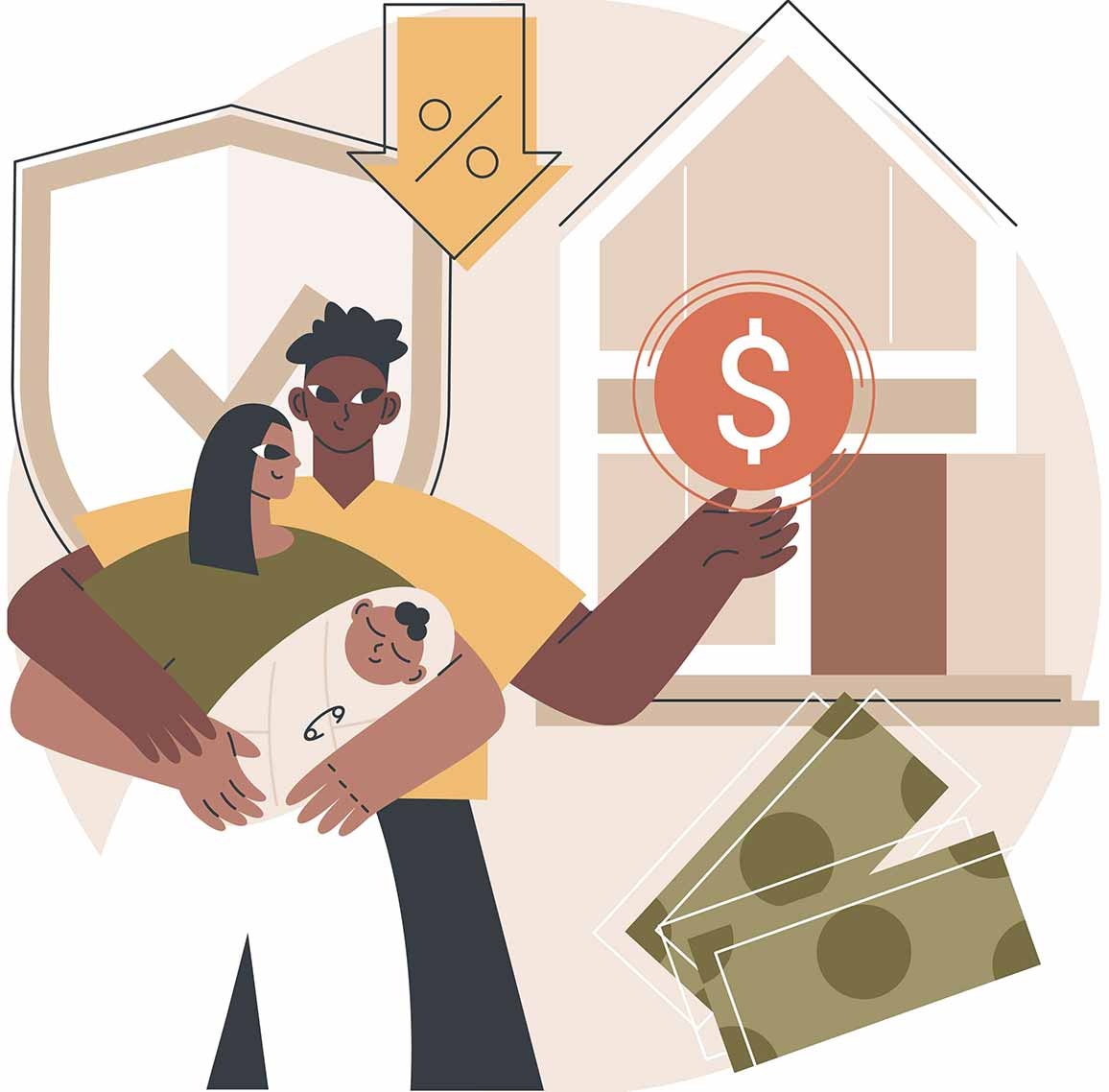
Home Equity Loan –
Second Mortgages
Diversifying Your Financial Strategy: Exploring A Home Equity Loan for a Better Future
A brighter future starts here!
The Royal Commitment: Maximize Your Home’s Value with a Flexible Home Equity Loan or Second Mortgage
When it comes to homeownership, building equity is a major benefit. Over time, as you pay off your mortgage, the value of your home increases, and you gain equity. But wouldn’t it be great to use that equity to your advantage? That’s where a home equity loan comes in. This type of loan allows you to borrow against the equity you’ve built in your home, providing you with the funds to achieve your financial goals. In this guide, we’ll cover everything you need to know about home equity loans, including types, requirements, pros and cons, and more.
What is a Home Equity Loan?
A home equity loan, also known as a second mortgage, is a lump sum of money borrowed against the equity in your home. This type of loan typically has a fixed interest rate, with a predictable payback period. The amount you can borrow is based on the equity in your home, which is calculated by subtracting the amount you still owe on your mortgage from the current market value of your home.
Types of Home Equity Loans
Let’s take a closer look at the different types of Home Equity Loans available:
Traditional Home Equity Loan:

A traditional home equity loan is a popular option for homeowners looking to tap into the equity in their home. This loan is typically a second mortgage, in addition to the primary mortgage on the property. The borrower can receive a lump sum of money and is required to make equal monthly payments over a set period, typically 5-15 years. The interest rates on traditional home equity loans are fixed, so borrowers can budget for the same payment amount each month. While the interest rates may be slightly higher than on a primary mortgage, they are often lower than credit cards or personal loans, making it a more affordable option for accessing funds.
Home Equity Line of Credit (HELOC)

A home equity line of credit, or HELOC, is a versatile option for homeowners who need access to funds over time. Similar to a credit card, a HELOC is a revolving line of credit, meaning the borrower can use and repay the funds as needed, up to a designated credit limit. HELOCs typically have variable interest rates, which means the interest rate can change over the life of the loan. This can be beneficial if interest rates are currently low, but it also means the borrower’s monthly payment amount may vary. HELOCs are often used for home renovations, debt consolidation, or emergency expenses.
Reverse mortgages:

A reverse mortgage is a unique type of home equity loan available to homeowners aged 62 years and older. This loan is primarily used as a retirement planning tool, giving older homeowners access to the equity in their home without monthly loan payments. Instead, the lender makes payments to the borrower, either as a lump sum, monthly payments, or a line of credit. The amount of funds available through a reverse mortgage is based on the borrower’s age, home value, and interest rates. The loan is typically not repaid until the borrower sells the home or passes away. Reverse mortgages can be a helpful option for retirees looking to supplement their income or cover unexpected expenses.
Cash-out refinancing

Cash-out refinancing is another way for homeowners to access their home equity. This process involves refinancing the existing mortgage and borrowing additional funds against the equity in the home. The new mortgage amount is higher than the remaining balance on the original mortgage, and the borrower receives the difference in cash. Cash-out refinancing can be a way to take advantage of lower interest rates or to secure a better loan term. However, it is important to carefully consider the cost of refinancing, including closing costs and potential changes in interest rates.
High-level Mortgage requirements
To qualify for a home equity loan, you need to have a good credit score, typically 620 or higher, and a debt-to-income ratio of 43% or less. You also need to have a significant amount of equity in your home and a steady income. Lenders will also take into consideration your loan-to-value ratio, which is the amount you want to borrow compared to the value of your home.
Loan Limits and restrictions
When it comes to borrowing against your home equity, there are limits and restrictions. Most lenders allow you to borrow up to 80% of the equity in your home. However, this varies based on the lender and your creditworthiness. There may also be restrictions on how you can use the funds from a home equity loan. Most lenders only allow you to use the money for home improvements, debt consolidation, or education expenses.
Pros of Home Equity Loan
-
Lower interest rates
: Home equity loans typically have lower interest rates compared to credit cards or personal loans. -
Tax benefits
: making it a more cost-effective way to borrow mone -
Flexibility
: The lump sum or line of credit provided by a home equity loan can be used for a variety of purposes, giving homeowners options for home improvements, debt consolidation, or other major expenses. -
No impact on primary mortgage
: A home equity loan is a separate loan from your primary mortgage, so it does not affect your primary mortgage’s interest rate or terms.
Cons of Home Equity Loan
-
Risk of foreclosure
: A home equity loan puts your home at risk if you are unable to make payments. If you default on the loan, the lender can foreclose on your home. -
Additional costs
: Like any loan, a home equity loan comes with closing costs, which can include appraisal fees, title search fees, and application fees. -
Variable interest rates
: HELOCs and some cash-out refinancing loans have variable interest rates, meaning your monthly payment can change, making it difficult to budget. -
May decrease equity in your home
: Taking out a second mortgage decreases the amount of equity you have in your home, which means less ownership of your property.
Who Should Apply
A home equity loan is ideal for homeowners who have a significant amount of equity built up in their homes. Equity is the difference between the current market value of your home and the amount you still owe on your mortgage. For example, if your home is worth $300,000 and you have a remaining mortgage balance of $200,000, your equity is $100,000. So, if you have equity in your home and a need for a large sum of money, a home equity loan can provide a lower interest rate compared to other types of loans, as the loan is secured by your home. This can make it a more cost-effective option for funding big expenses.
When To Apply
There are several situations where a home equity loan can be beneficial. If you need funds for a home renovation project that will increase the value of your home, a home equity loan can be a smart choice. It can also be a useful tool for consolidating high-interest debt, such as credit card balances, into one lower monthly payment. Other legitimate reasons for considering a home equity loan include paying for a child’s college education, covering medical expenses, or starting a business. In these cases, a home equity loan can provide access to a large sum of money at a lower interest rate than other types of loans.
Who Should NOT Apply
While a home equity loan can be a useful financial tool, it is not for everyone. If you have a small amount of equity in your home or are close to paying off your mortgage, a home equity loan may not be the best fit. Additionally, if you have a history of financial irresponsibility and have trouble keeping up with payments, a home equity loan may not be the best option for you. It’s also important to consider the purpose of the loan. If you are using the funds for unnecessary expenses or an extravagant lifestyle, a home equity loan may not be the right choice. Remember, the loan is secured by your home, so failure to make payments can result in the loss of your home.
It’s always best to speak with a home loan specialist to determine which option is best for your unique financial situation.
When NOT To Apply
While a home equity loan can be a helpful financial resource, there are times when it’s best to avoid it. If you are struggling to keep up with your current mortgage payments, taking out a home equity loan can put you at risk of losing your home. It’s also important to thoroughly assess the purpose of the loan. If you are considering a home equity loan to fund a lifestyle you cannot afford, it may be time to reevaluate your spending habits. It’s also crucial to shop around for the best interest rate and terms when considering a home equity loan. Do not jump into a loan without thoroughly exploring your options, as a high-interest rate can end up costing you more in the long run.
Additional Things to Consider
-
Interest rates
: Make sure to carefully consider the interest rate and terms offered by different lenders to ensure you are getting the best deal. Potential fees
: Take into account any fees associated with the loan, including closing costs and application fees.Repayment terms
: Understand the repayment terms, including the length of the loan and if there are any penalties for early repayment.
Tips on Applying for Loan
- Check your credit score and try to improve it if necessary before applying.
- Shop around and compare offers from different lenders.
- Be prepared to provide documentation, such as income verification and home value appraisal.
- Carefully read and understand the terms and conditions of the loan before signing.
- Get pre-approved to determine the loan amount you can afford
- Consider consulting a mortgage broker to find the best loan option for your needs.
In Summary
A home equity loan can be an excellent option for homeowners looking to access their home’s equity for financial flexibility. With various types of loans, numerous benefits and considerations, it’s crucial to do your research and choose the right loan for your specific needs. By understanding the requirements and loan limits, considering both the pros and cons, and carefully planning your loan repayment, you can tap into your home’s value and achieve your financial goals.
Learn More
If you’d like to learn more about home euqity loans or to see if you qualify, we recommend speaking with a mortgage specialist
Mortgage Rate Trends:
A Historical Analysis
Unlock the Power of Numbers
Start Pre-Approval Application More on credit, LTV and Rate Trends
Advanced Mortgage Calculator
Get Pre-Qualified
Fill out our Pre-Qualification Survey to view your mortgage options
[bitform id='26' ]Here, Your Mortgage possibilities are endless!

Down Payment
Assistance 
Down Payment Assistance Programs
Get Up To 100% Financing For Your Home!
Visit Our Page

First-Time
Homebuyers 
First Time Homebuyer Mortgage Programs
If you are buying a home for the first time, you have come to the right place.
Visit Our Page

